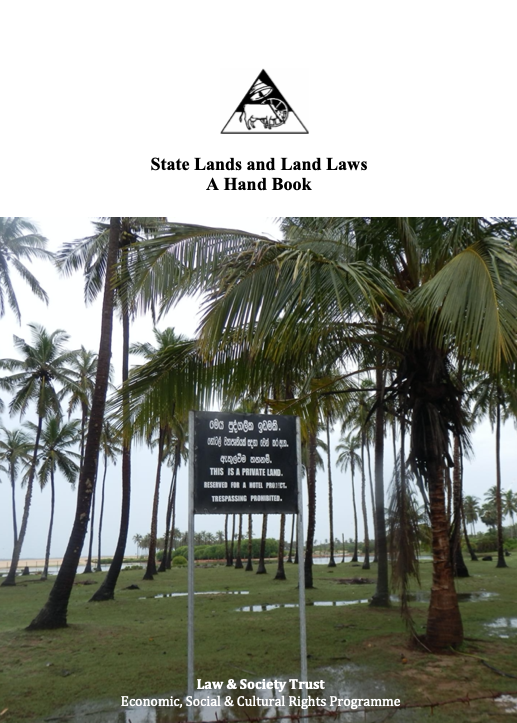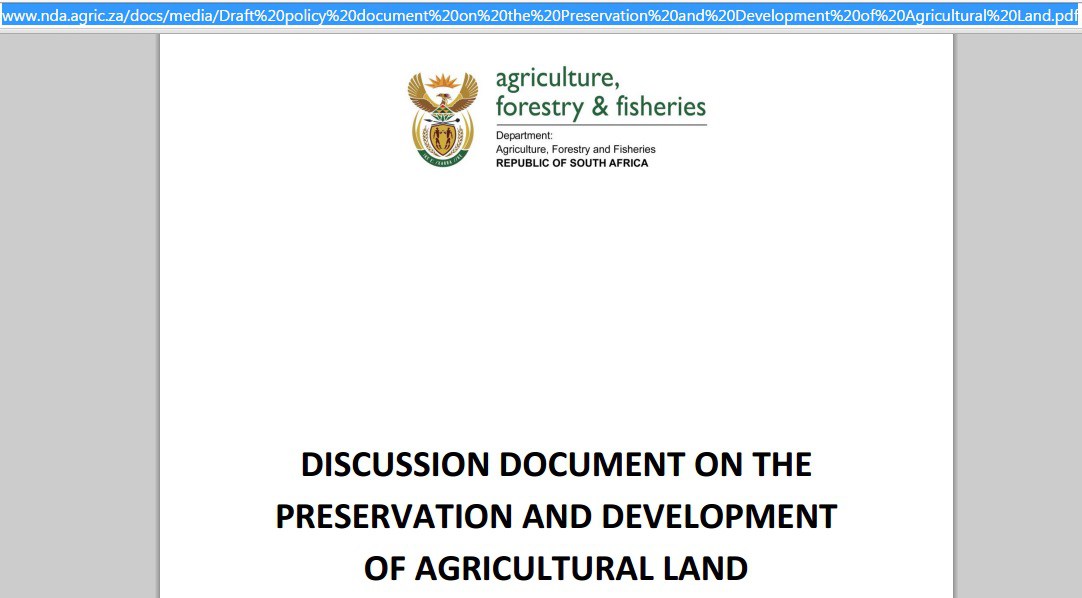The Energy Act, 2015.
A Bill for AN ACT of Parliament to consolidate the laws relating to energy, to provide for National and County Government functions in relation to energy,to provide for the establishment, powers and functions of the energy sector entities; promotion of renewable energy; exploration, recovery and commercial utilization of geothermal energy; regulation of midstream and downstream petroleum and coal activities; regulation, production, supply and use of electricity and other energy forms; and for connected purposes.
State Lands and Land Laws: A Hand Book
The state owns over 80% of the land in Sri Lanka. The remainder is owned by private parties. Under the State Lands Encroachments Ordinance, all waste lands, forest lands, unoccupied and uncultivated lands are presumed to belong to the state until the contrary is proved (section 7) and all cinnamon land which have been uninterruptedly possessed by the state for over 30 years are held and deemed to belong to the state (section 6).
Large-Scale Land Acquisitions
Includes the commodification of land, the effects of the land rush in developing countries, land rush land grab?, how much land is involved?, can land deals work for small farmers?, the actors involved in large-scale land acquisitions, legal frameworks protect the investors, international mechanism for protecting human rights, at national level little protection for the poor.
Reivindicación por el Territorio en el Departamento del Cauca: Consejo Comunitario Comunidad Negra del Pílamo y Palenque
Se trata del caso del Consejo Comunitario comunidad negra de Pilamo y Palenque, reconocido como territorio por ley, a partir de procesos de ocupación pacífica de ttierras, negociación de compra de las mismas por parte del Estado y la correspondiente adjudicación.
Understanding land acquisitions in Namibia’s communal land: Impacts and policy implications
Members of rural communities in Namibia often lack a basic understanding of what their user rights and responsibilities are under the Communal Land Reform Act and are also unaware of their rights to object to a proposed land allocation or to appeal a decision once made. The large-scale acquisition of land for agriculture and conservation projects often displace local communities or reduce their access to control and ownership of key resources due to the gaps between good legislation and inadequate implementation and enforcement.
Ingonyama Trust Board on its 2014/15 Annual Report
The Ingonyama Trust Board (the Trust) presented its Annual Report for the 2014/2015 financial year. The Trust had committed R6 000 000 for the purchase of tractors to support production on communal land and noted that substantial sums of money were paid out for the benefit of 120 Learners. Employment, HR and vacancy figures were given. The Trust highlighted some performance statistics. In this year, the Board had approved 1 100 tenure rights, falling short of the target of 1 200.
Department of Rural Development and Land Reform; Ingonyama Trust; Commission on Restitution of Land Rights on their 2014/15 Annual Reports; Audit outcomes by Auditor-General
A representative of the Auditor-General South Africa (AGSA) briefed the Committee on the audit outcomes and expenditure patters in the rural development portfolio for the 2014/2015 financial year. The quality of submitted financial statements for the Agricultural Land Holding Account (ALHA) was good but needed improvement. The quality of submitted performance reports for Ingonyama Trust Board (ITB) was good but required intervention from the Department of Rural Development and Land Reform (DRDLR or the Department).
Institutional Synergies in Customary Land Markets—Selected Case Studies of Large-Scale Land Acquisitions (LSLAs) in Ghana
Synergies among land institutions and institutional changes impact on land markets and in guaranteeing agro-based employment, capital injection, local economic development and infrastructural improvement. Increasingly, these institutions have come under pressure and there are concerns about their functional capacities and implications on land markets. This paper discusses institutional synergies and its impacts on customary land markets under large-scale land acquisitions for agro-investments in Ghana.
Discussion document on the preservation and development of agricultural land
The preservation, development and sustainable use of agricultural land are of vital importance to ensure longterm food security in South Africa. These principles of food security as well as an integrated, inclusive rural economy underpin the core focus areas of the National Development Plan, Vision 2030 (NDP).
Equitable and Sustainable Development of Foreign Land Acquisitions: Lessons, Policies and Implications
Large-scale agricultural land acquisitions have been covered substantially in recent literature. Despite the wealth of theoretical and empirical studies on this subject, there is no study that has reviewed existing literature in light of concerns over sustainable and equitable management. This chapter fills the gap by analyzing and synthesizing available literature to put some structure on existing knowledge. The paper has a threefold contribution to the literature. First, it takes stock of what we know so far about the determinants of land grab.
Trayectorias para un retorno, el emprendimiento de José y Sofía
El matrimonio de José y Sofía, asentado en el departamento de Cusco, Perú, acumula dinero trabajando como obrero por temporadas en la actividad minera para luego hacerse de tierras, reclamando su herencia y posteriormente comprando propiedades, en su lugar de origen. La compraventa de tierras sucede a través del intercambio con otros propietarios del lugar hasta conseguir una hectárea.







